- Category
- Life in Ukraine
In Ukraine, Ketamine-Assisted Therapy Aims to Heal the Mental Wounds of War
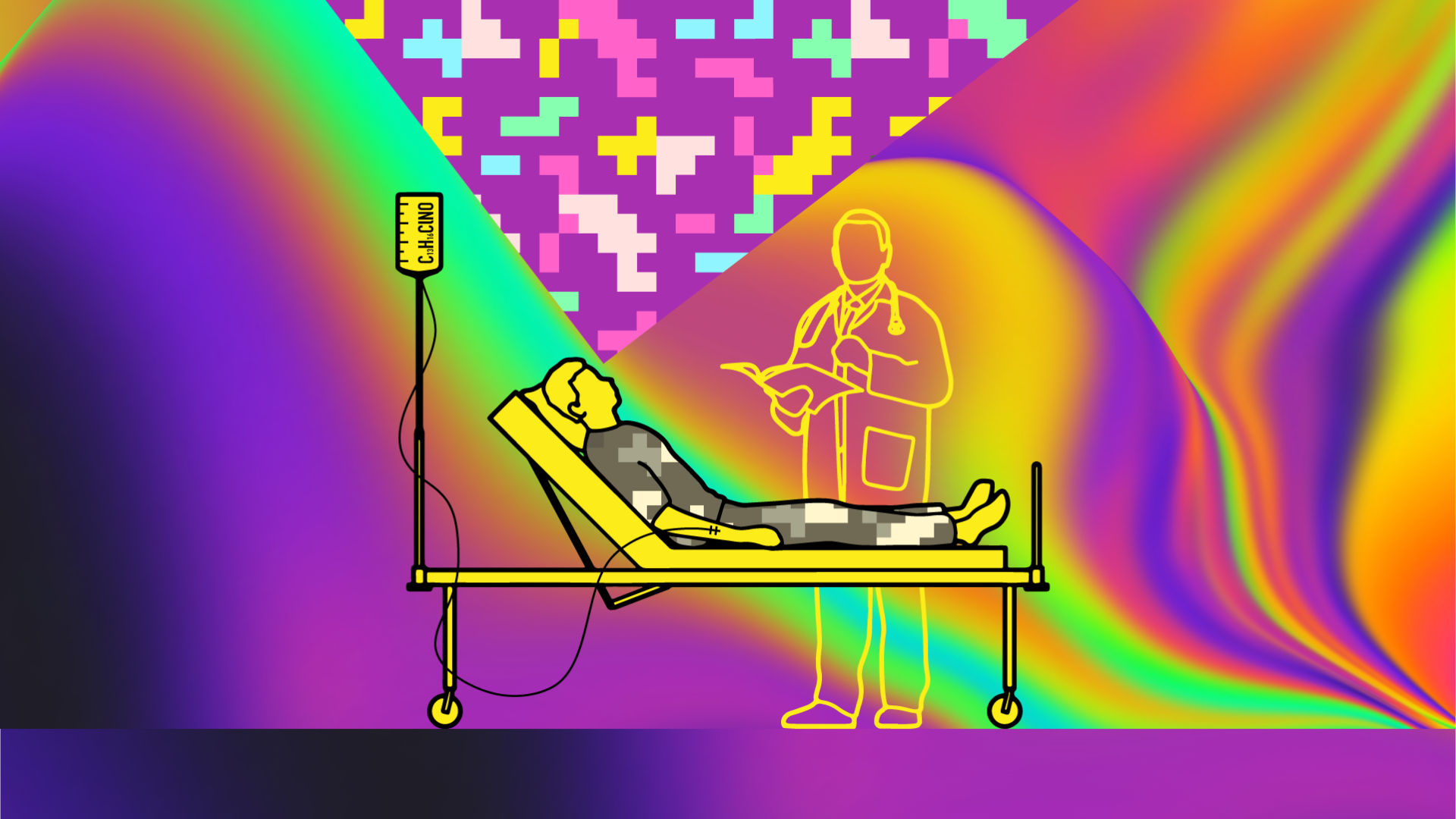
There’s a lot of talk about rebuilding Ukraine, and much of the conversation is around infrastructure, inanimate objects that may crumble—only to have something new stand in its place. However, there is the underlooked human element of rebuilding, which has a much more complicated roadmap to recovery.
“I got 5 contusions. The last one was very serious,” Oleh Kazantsev, a former Jr. Sergeant in the Ukrainian Armed Forces, tells me as we sit a clinic in Kyiv. “After recovering in the hospital, I came home, and that’s when the changes started. PTSD started. I didn’t want to leave my house.”
It is estimated that between 12-20% of individuals who have experienced or witnessed traumatic events may develop PTSD, a stress-related disorder that occurs after the experience of a traumatic event. In war-rattled Ukraine, where daily life runs the risk of receiving trauma, these statistics paint a stark picture as a fifth of the population can potentially fall into the affected category.
War does not discriminate, and any demographics fall under the risk of developing serious war-related traumas. Now, in the face of a looming mental health epidemic, the global mental health community has rallied around Ukrainians who are currently preparing a solution that, if scaled, could treat millions with a nontraditional form of therapy: Ketamine-Assisted Therapy (KAT).
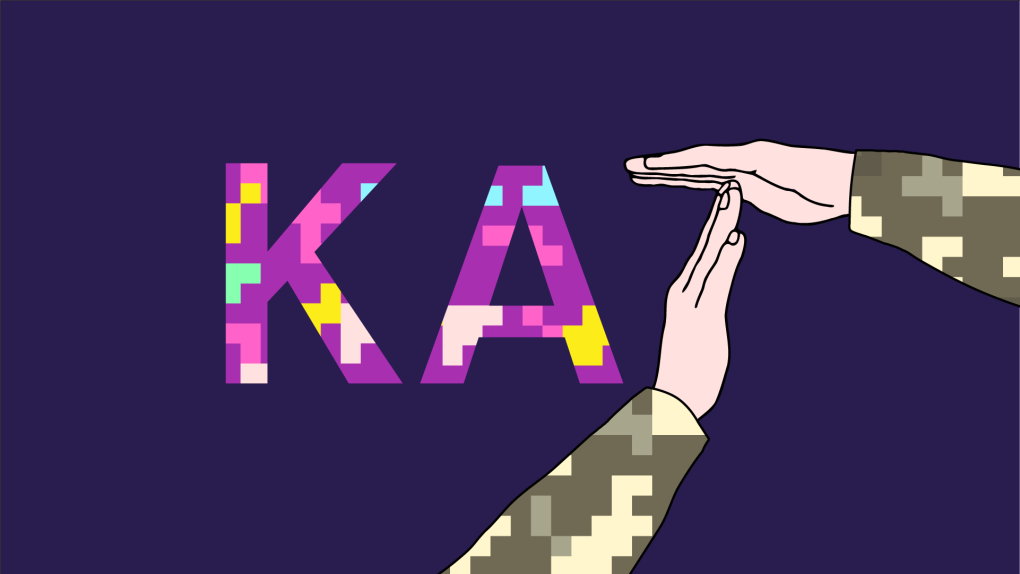
KAT had been making headway under the radar, treating Ukrainian veterans and civilians with PTSD symptoms stemming from the beginning of the war in 2014. Now with Ukraine’s mental health resources at risk of being stretched far past their capacity because of Russia full scale invasion, the race to scale up KAT and educate is underway.
Psychedelic Past
While Ketamine is classified as a dissociative drug, it still is under the umbrella of Psychedelic Assisted Therapy. It has dissociative and hallucinogenic properties that can induce altered states of consciousness similar to those produced by classic psychedelics like psilocybin and LSD.
The use of psychedelics in clinical treatment is nothing new. Dr. Humphry Osmond, an English Psychiatrist, used LSD to treat alcoholics in the 1950s. His findings would go on to inspire the MI-6 and the CIA to use the drug as a “truth serum.”
In the 1960s, drugs like LSD, MDMA, and Psilocybin (Mushrooms) were becoming popular alternatives to traditional means of treatment—especially for treatment-resistant disorders. However, real breakthroughs in research couldn’t be made as the Nixon administration passed the Controlled Substances Act—a response to the hippie movement of the 1960s and the psychedelic drugs they were using.
The new American law classified LSD, psilocybin, and other psychedelics as Schedule I substances, “indicating a high potential for abuse and no accepted medical use.” This effectively ended most legal research and clinical use of psychedelics in the United States but also globally. Those who refused to concede their research moved underground and stayed there well into the 1990s.
Legal Ketamine
Ukraine has been at war with Russia since 2014, and the consequences of a long-standing war have logged significant mental health issues for soldiers and civilians. The strain on the country’s mental health resources was felt, and it was greatly exacerbated by Russia’s full-scale invasion in 2022.
One approach shows promise as a solution to a looming burden, and it is already yielding results that come faster and more efficiently than traditional therapeutic solutions. That approach is Ketamine-Assisted Therapy (KAT).
The anesthetic, commonly referred to by party-goers as a horse tranquilizer-turned-recreational drug, has piqued the interest of the Ukrainian state, which is preparing a comprehensive strategy to address the looming mental health crisis stemming from 10 years of war.
Experts say that the therapeutic potential of ketamine lies in its ability to produce rapid antidepressant effects and facilitate the processing of traumatic memories. According to the experts interviewed, Ketamine can be used as a great tool to allow a subject to enter a state of neuroplasticity—when the brain can reorganize how it functions.
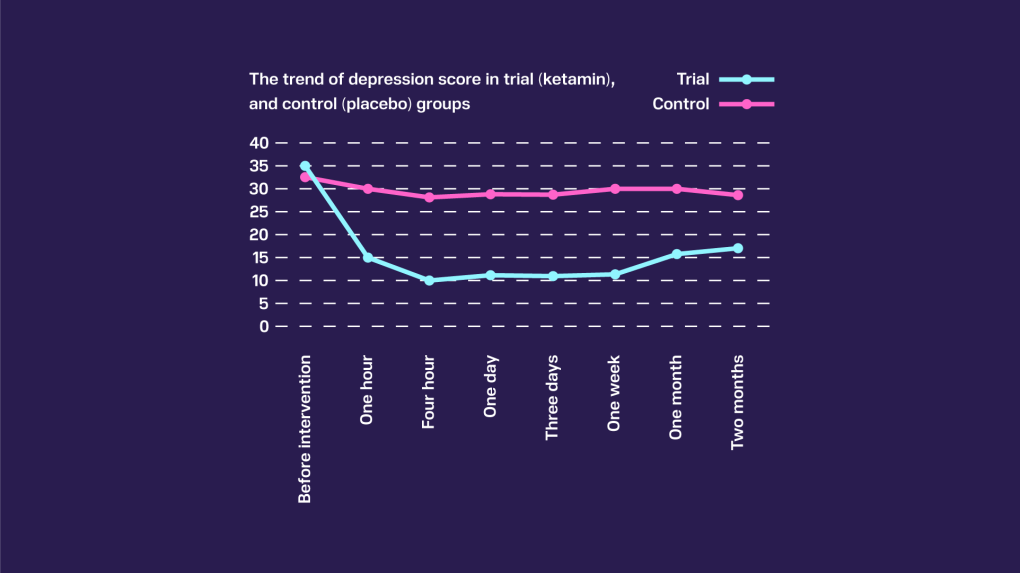
In an attempt to offer safe and regulated mental health treatments to those in search, the Ukrainian Ministry of Health supported Ketamine-Assisted Therapy for clinical use in 2017.
KAT, which partners itself with various talk therapies, is considered by many in the PAT community as a very effective alternative for those facing severe treatments like:
Traditional Cognitive Behavioral Therapy.
SSRIs (Serotonin Reuptake Inhibitors).
ElectroConvulsive Therapy.
Anti Psychotics.
Mood stabilizers.
Case Studies and Clinical Success
One notable case is that of Ihor Kholodylo, a military psychologist and medic who suffered severe injuries and PTSD after a Russian tank shell hit his vehicle during an evacuation. Kholodylo—who is fortunate enough to have the right background—struggled with conventional therapies, and his symptoms persisted, specifically his issues with speech.
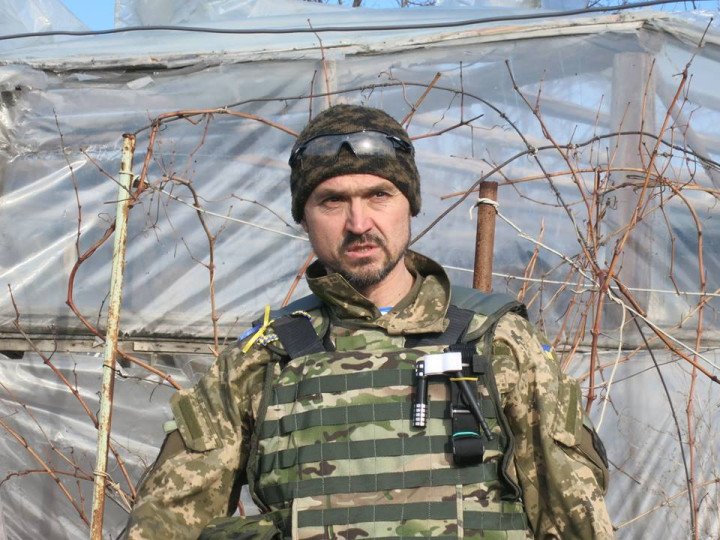
Kholodylo turned to Dr. Vladyslav Matrenytskyi, a pioneer in psychedelic psychotherapy in Ukraine. Matrenytskyi has treated many patients at his clinic, and a growing number of them are soldiers. His clinic is Ukraine’s first private clinic to be given a license to provide Ketamine therapy.
Kholodylo recounts a very powerful KAT session on a Zoom call with me, he explains going back to a moment that he had painfully carried within himself. The ketamine drip provided a relaxed and euphoric feeling, the clinic provided a sense of safety, and the therapist guided Kholodylo through his dream-like state.
Ihor Kholodylo was in many “hot zones" across the frontline. He specialized in medical evacuation—taking the wounded away from harm’s way and back into friendly territory for medical treatment. One moment stuck with him: the passing of a fellow soldier under his care.
A transformed Kholodylo recalls that in his dream-like state, he experienced the moments leading to the soldier’s death. Kholodylo’s first instinct as a medic was to perform first aid on the soldier’s wounds, but his training as a psychologist would later kick in when he realized how dire the soldier’s circumstances were.
Kholodylo prepared the soldier for the inevitability of his death—while simultaneously doing everything he could to buy the soldier precious time for a life-saving procedure. Under the guidance of his therapist, Kholodylo met with the soldier in his memories and received what he needed to hear: reassurance that Kholodylo did everything he could to keep the soldier alive.
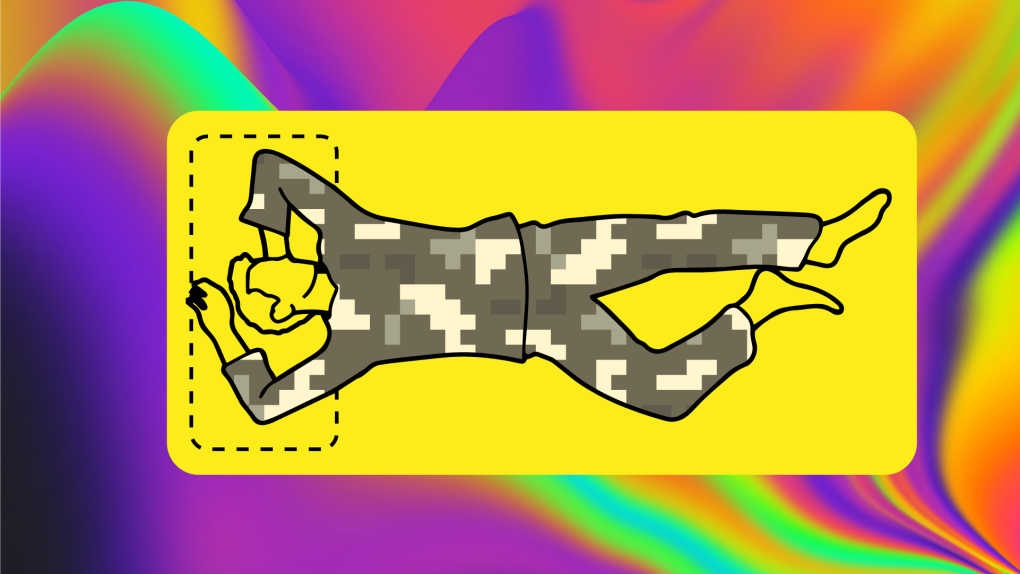
Kholodylo continues, describing coming back to consciousness. The therapists immediately probed him about breakthroughs and emotions he had experienced, except this time, something was different. Everyone in the room had tears in their eyes. Kholodylo didn’t notice it himself but he was speaking without any hardship.
Remarkably, after just a few sessions, Kholodylo says that his stammering had significantly improved, and the most critical PTSD symptoms had subsided. He claims that after about ten or so KAT sessions, he had regained a semblance of normalcy in his life. Kholodylo is now in Japan receiving treatment for his eye, which had sustained injuries from the blast.
Research on American Veterans
Dr. Zachary Skiles is the Resident Psychologist at Heal Ukraine Trauma (HUT), a nonprofit from the United States that focuses on (among other things) training mental health professionals in administering PAT. Dr. Skiles is also in the Social Neurosciences and Psychotherapy Lab (SNaP) at the Portland Veterans Administration, where he administers and researches PAT and its therapeutic effects on American veterans with issues ranging from drug abuse to PTSD.
Dr. Skiles has done extensive work with the American veteran community. In a conversation over Zoom, he divulges a thinly kept secret within the special forces community: he says that they are all tripping. Yes, the warriors known across the world for their ruggedness and hard exterior are experimenting with psychedelics within veteran communities, “turning into teddy bears”—as they process the traumas associated with being a professional warrior.
The benefits of Psychedelic-Assisted Therapy (PAT), particularly with Ketamine Therapy, which is currently legal in Ukraine, seem to be notable. Ketamine's dissociative properties allow patients to detach from their immediate surroundings and emotions, creating a state in which they can confront and process traumatic experiences without becoming overwhelmed.
This therapeutic approach facilitates deep emotional exploration and healing. The patient is allowed a chance for decompression, or the process of alleviating psychological pressure and stress. KAT helps patients achieve a mental state where they can effectively address and manage their trauma.
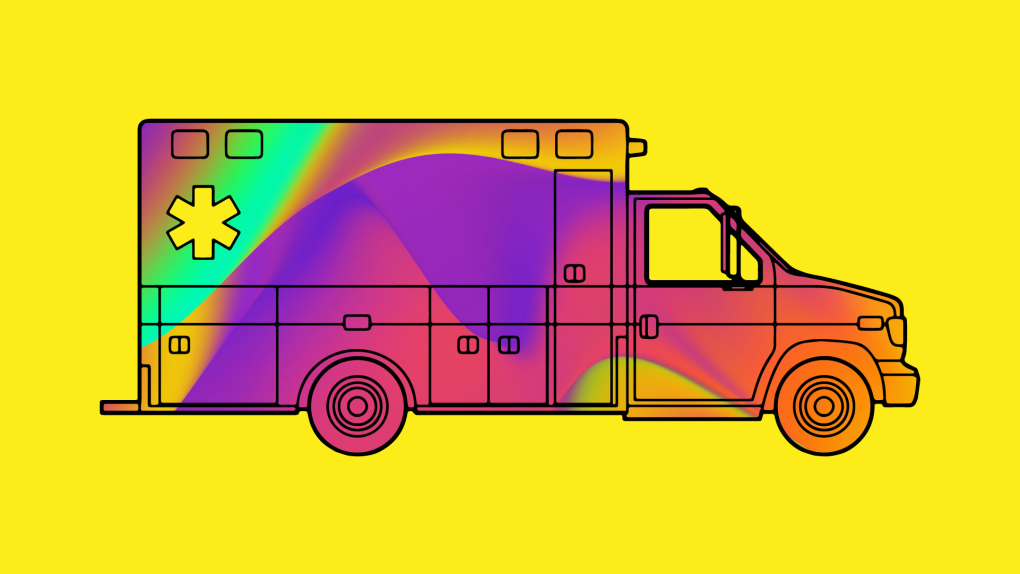
This effect is said to have the potential to immediately help reduce the intensity of PTSD symptoms and improve overall mental health. The therapeutic process should involve guided sessions where patients are encouraged to explore their subconscious traumas, transforming them into metaphorical journeys that can be more easily managed and understood.
Broader Implications and Ethical Considerations
According to Dr. Skiles, the success of Ketamine Assisted Therapy in Ukraine can have broader implications for mental health treatment in military contexts. Dr. Matrenytskyi and others advocate for the inclusion of other psychedelics, such as MDMA and psilocybin, in therapeutic protocols—although these substances are still banned in Ukraine. Advocates argue that these treatments could further enhance the recovery process for soldiers with drug-resistant PTSD.
However, the use of psychedelics in treating active soldiers raises ethical and moral questions. The potential for misuse, dependency, and the psychological impact of such treatments on combat readiness are significant concerns.
JAMA, a peer-reviewed medical journal has published its systemic review of Psychedelic-Assisted Therapy and brought to attention the risks associated with the “understudied therapeutic component”.

But out of the 8 people interviewed in this report, when asked about the potential for misuse, or malpractice they maintained that a clean and regulated drug is being administered by trained mental health professionals – safely. PAT, though still in its infancy; is widely considered a safer alternative to self-medication which is often facilitated through illegal and unsafe means.
Dr. Matrenytskyi, when asked about the potential for addiction—and patients coming to his clinic to abuse the availability of legal ketamine—explains that after finishing a session, patients will have a high likelihood of associating Ketamine Assisted Therapy with hard work. He clarifies that sessions are not about the euphoric elements but their ability to lead patients through traumatic events and allow them to process them in a safe environment.
Future Directions
All eyes will be on Ukraine as the integration of KAT and potentially more variations into mainstream PTSD treatment could revolutionize mental health care both in the military and civilian sectors. The process of training mental health providers and educating the many entities part of the ecosystem on KAT is vital for large-scale success.
Ukraine’s Ministry of Defense and Ministry of Health have both shown an openness to addressing the looming mental health crisis with experimental approaches. Forrest Glade is a medical center run by the Ministry of Health that specializes in treating severe psycho traumas
for soldiers. According to their Director, Ksenia Voznytsyna; the government-run facility will be acquiring a license to administer KAT.
Voznytsyna also envisions an expansion of PAT programs at her facility, including the eventual use of MDMA and Psilocybin, although she acknowledges this is a distant goal. Nonetheless, the transition from private facilities like Expio to publicly funded institutions like Forrest Glade and SNaP, where Dr. Skiles practices, marks a significant step in the acceptance and destigmatization of PAT, moving away from its past associations with taboo and underground practices.
Nonprofits like Healing Ukraine’s Trauma and the Ukrainian Psychedelic Research Organisation are tasked with ensuring that all levels of society are informed and equipped to handle this transformation. These organizations are working tirelessly to provide resources, conduct research, and offer training sessions to ensure that practitioners are well-prepared to utilize KAT effectively. They also collaborate with international bodies to standardize protocols and ensure that best practices are followed.
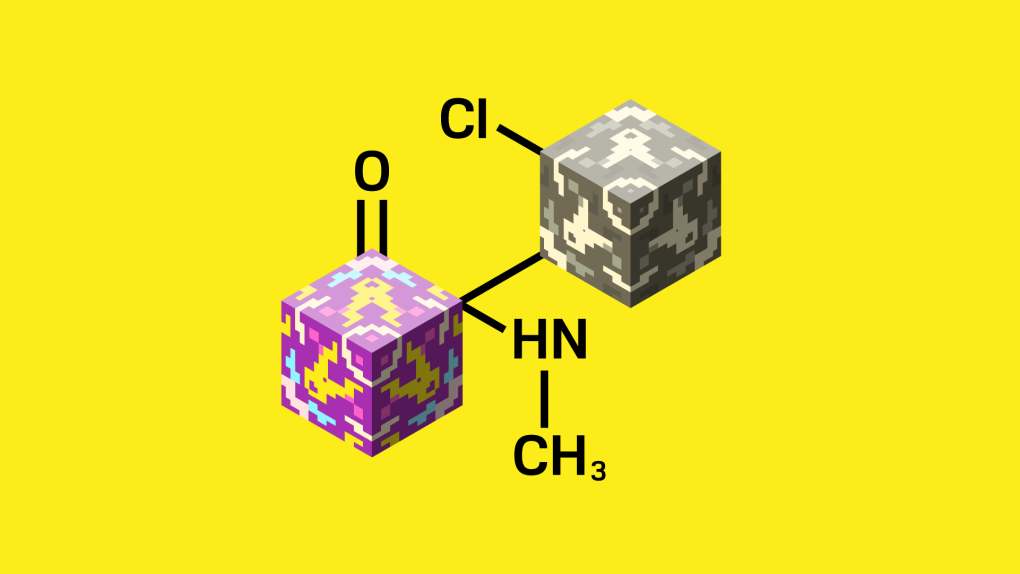
The success of these efforts could serve as a model for other countries facing similar challenges, demonstrating the potential of innovative treatments in addressing complex mental health issues. By fostering a collaborative approach and leveraging the strengths of various stakeholders, Ukraine is poised to make significant strides in mental health care.
Psychedelic-assisted therapy is emerging as the “new hope” for treating PTSD among Ukrainian soldiers. Its rapid symptom relief and positive psychological impact provide much-needed faith in a reconstruction that doesn’t just involve buildings and infrastructure. As this therapy evolves and more people participate, the accumulated data can revolutionize mental health care worldwide.
Continued research and clinical trials are crucial for establishing best practices, understanding long-term effects, and expanding access to millions who could benefit. Ukraine, amidst its evolving approach to various issues such as drone warfare, may also lead to adopting innovative mental health treatments like those involving psychedelics.
Internationally, overcoming the stigma associated with psychedelics at both the social and legal levels is essential. However, even after this hurdle is cleared, the challenge of healing Ukrainians who have endured a decade of existential war will remain.



-6ead6a9dd508115a5d69759e48e3cad1.jpg)
-29a1a43aba23f9bb779a1ac8b98d2121.jpeg)
-7f50738271c122a9b5e663cb80703dd6.jpg)

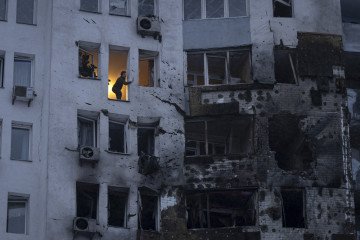
-554f0711f15a880af68b2550a739eee4.jpg)